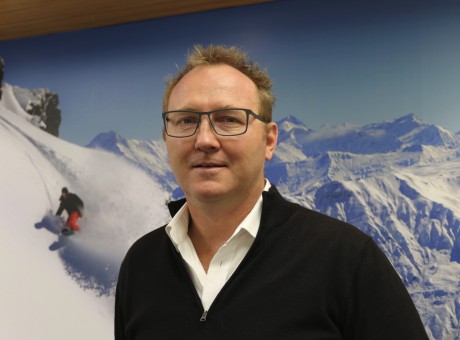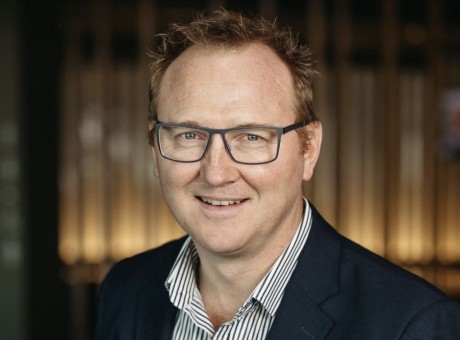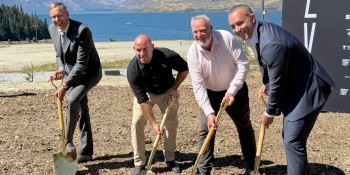From dog hair and dust to mayoralty: Glover's 1000 days begin
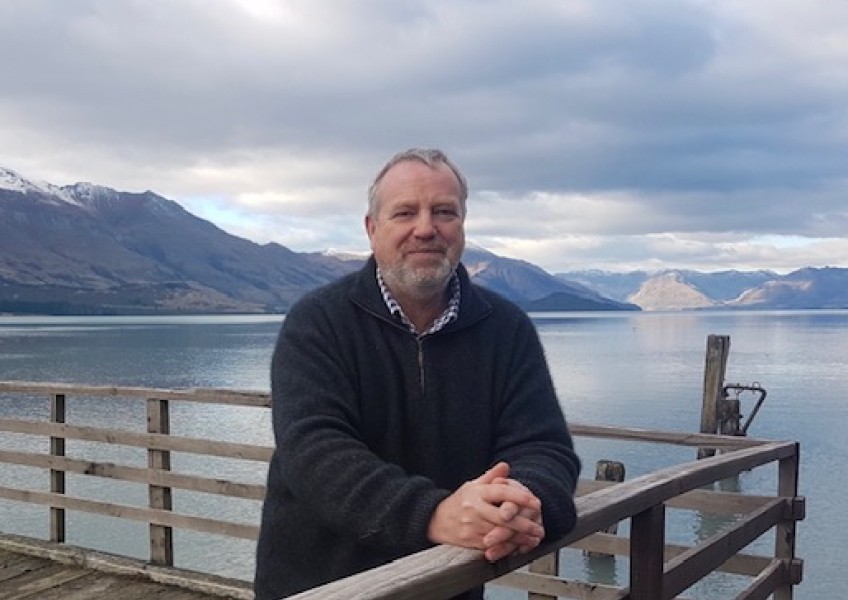
With meetings, media interviews, wild weather, councillors to meet and of course “mayor school,” it’s no surprise new Queenstown mayor John Glover has been busy since the election.
It’s been three weeks since Glover unseated Glyn Lewers, fetching more than a third of all votes to win the mayoralty. Sworn in on Thursday, Glover says he’s still in the “honeymoon period” but with only 1000 days in the triennium, he’s eager to get started.
“I think I’ve got a little honeymoon period at the moment. We’ve got 1000 days in this triennium and I do feel that the days are going to sneak by really quickly. It’s almost like the sand is running out.”
Last week Glover was at “mayor school” with Local Government New Zealand featuring information, resources, speakers and a chance to network.
Glover unsuccessfully ran for council in 2013, 2019 and 2023, so what made this year a success?
He says he wasn’t previously widely known, but built relationships in communities and with the likes of the Chamber of Commerce and Destination Queenstown through his work with non-profit Shaping Our Future.
He also aimed to be authentic on the campaign, by not scripting any stand ups.
“I just decided on the way to each event what I was going to say which was a risk but I think you need to sense the mood in the community and in the room when you’re getting there,” he says.
“The question is how to look like the person that could be in the role, but keep the attributes that resonated with people.
“A very early decision we made, thinking about strategy for the campaign, was what are people looking for? It’s an obvious question. What do they want in a mayor?
“My assessment was that in these times of authoritarian leaders that we’re seeing around the world, people actually want to connect with the human. They want to be listened to … They want somebody that’s authentic, approachable, relatable and that was very, very key to my election campaign strategy.”
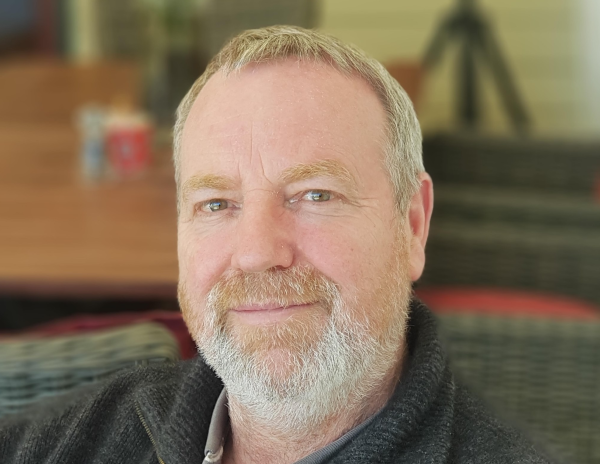
- John Glover aimed to be authentic on the campaign trail.
It’s part of the reason Glover’s election hoardings featured him in a baggy jumper leaning against a building.
“That was my ‘this is me’. What you see is what you get.”
But some feedback was he needed a jacket to look smarter. And so started the juggle between “Jacket John” and “Jumper John”.
“We live at the head of the lake, dog hair and dust, that’s our natural environment ... I became Jacket John. The reality is I think people want to meet Jumper John but they want you to look like Jacket John.”
Glover campaigned on restoring public trust in the council, listening to the community and ensuring better value for ratepayers.
He says restoring trust comes down to listening to and engaging with the community, and getting them to set the direction and identify priorities.
“I think having meaningful engagement comes down to how we do that and it comes back to what’s the point, why bother. We’ve got to work really hard to make it better. Getting people involved in that is going to be a real key,” Glover says.
“As people who are being asked to make decisions our role is actually asking what were the options that were discounted and why? And then looking at it from another perspective, if somebody was coming in from outside, what were the options that they would expect to have been considered?
“Part of governance is what I would call curious questioning at a high level and then being able to have a clear explanation as to what has or hasn’t been considered and why.”
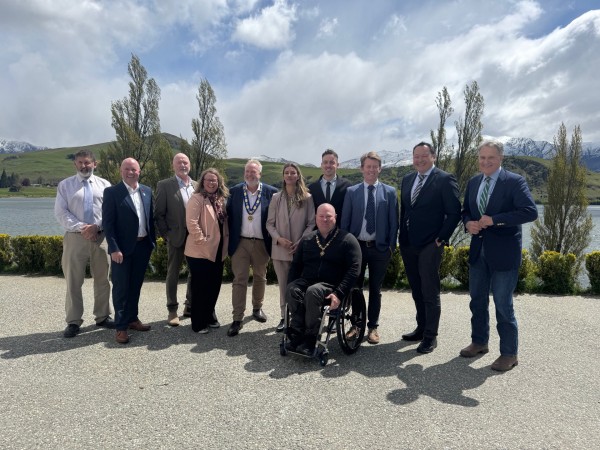
- Newly elected councillors at the swearing in ceremony.
With division seen between councillors in the previous term, Glover is also already making moves to create a more united council.
Community dissatisfaction with the previous council saw the loss of four incumbent councillors. Combined with councillors not restanding, there are six new faces at the council table, including Glover – Stephen Brent, Jon Mitchell, Samuel ‘Q’ Belk, Heath Copland and Nicola King.
One of Glover’s first actions was to gather elected members for an ‘informal meeting’ the Monday after election day.
The councillors who were able to attend were there based on progress results. This included Yeverley McCarthy who lost the seat she believed she held once results were finalised.
Glover says he feels for both McCarthy and Tucker: “The human impact of that is horrible.”
“Having not been successful on three previous occasions I know how impactful that is. Any candidate that runs has to visualize yourself in the role and so you put a lot of emotional investment into that and if you don’t get it, you don’t get it. But to think you’ve got it then not, that’s really tough and I wouldn’t want anyone to go through that.”
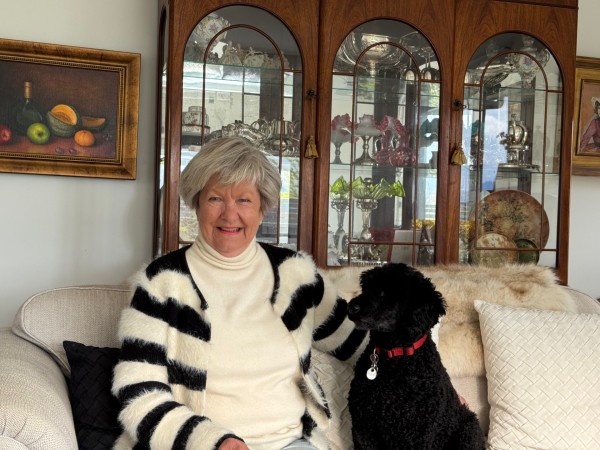
- Yeverley McCarthy believed she had won a seat on QLDC but final results swung the seat.
Glover says the informal session was to have a “hot debrief” and transition from campaign mode, to a united team.
“We are starting to talk about how it felt, what we heard, what our values are, how we’re going to behave, how we’ll agree, disagree, but also what we want to achieve,” Glover says.
“As a group sitting around the council table, we need to really land our values, but also our three-year goals. What is the tangible difference that we want to have achieved at the end of three years? Because unless we can verbalise that, the organisation won’t be able to deliver it.
“In terms of how you make change, which I think is a very clear message we heard from our communities, then the desire to get on with that is very high.”
With councillors geographically dispersed, face to face time can be difficult but he thinks it’s important to have regular check ins about what’s working.
“I’ve been an employer for 25 years in my business, so these sort of things are normal in business. You’ve got different people who’ve got different needs, different levels of skills, different levels of ability. But my job, as I see it, is to get a really good team of high-performing councillors with confidence and skills and the knowledge to do the role.”
He believes councillors are looking for a reset, votes show perhaps the community is too.
“The challenges will come and we have difficult decisions to make but I think if we’ve worked through how we communicate, how we discuss things, how we agree, how we disagree, that shouldn’t be a problem at all.
“You’ve got 12 feisty, highly motivated people sitting around a table, so there’s going to be differences of views and different opinions. But everyone is here because they want to make a positive difference. That’s the one thing that unites all of us.”
He also has full confidence with second-term deputy Quentin Smith at his side.
“Quentin has got the experience, he’s been around enough, he knows the issues, he knows the processes,” Glover says.
“That again, is the same reason I’ve asked that he be appointed as the number two on the Regional Deal Steering Committee.”
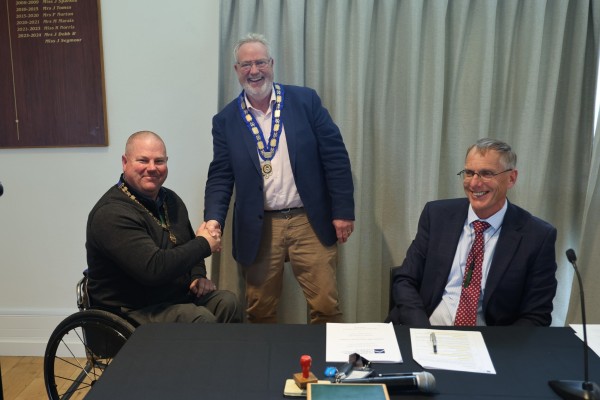
- Glover, says Quentin Smith, left, was an obvious choice for deputy.
He cites Smith’s background in planning and spatial planning, and time on the Otago Regional Transport Committee as other qualities that make him a logical fit.
During the campaign, Glover said one challenge for a new mayor coming in would be “understanding all the secret deals that have gone on”.
Any progress in the past three weeks?
“Not yet,” Glover laughs. “I think this is where it comes to asking the right questions and having confidence about how we procure things.”
He brings up Lakeview.
“There was a very clear set of project objectives for that. I’ve asked how are those objectives tracking? That’s a reasonable question, have we got what we started with? Then a part of that is the learning and your scope drift or project drift or budget blowouts.
“Someone in governance has got two roles, they have to inform policy and strategy, but the oversight of implementation and accountability is an equally important part of it, and that’s something I think we need to look at.”
It’s a coincidence he brings up procurement when there has been some criticism of the process previous mayor Glyn Lewers undertook to procure a recruitment agency pre-election to find a new council chief executive.
Glover criticised this as “ill-timed” during the campaign and says councillors will now need to decide whether or not to continue with the recruiter.
“If they don’t wish to continue with the existing one, they may well want to go back to the market.
“The most important thing is that we get the right person for the job and that every councillor is fully comfortable with the process of engaging the recruiter and the process that we go to, to define the attributes, the job description, the particular nuances that we’re looking for in a candidate.”
Glover also inherits Shotover river compliance issues. He’s already said he wants to look into bringing in a Crown Observer to investigate the council’s handling of issues at the Shotover Wastewater Treatment Plant, among other things.
“We need to learn why things happen. There’ll be some discussions about whether you continue to add more into that plant and then we have the funding and finance.
“It might be that logic would say you pump everything towards the new wastewater plant not the existing one that we should then upgrade. But reality might be that you can’t afford to do that, and you need to look at decentralised systems. But there’s pros and cons around all of that.
“Obviously, the resource consent is going through its process at the moment, and we’ll see how that plays out.”
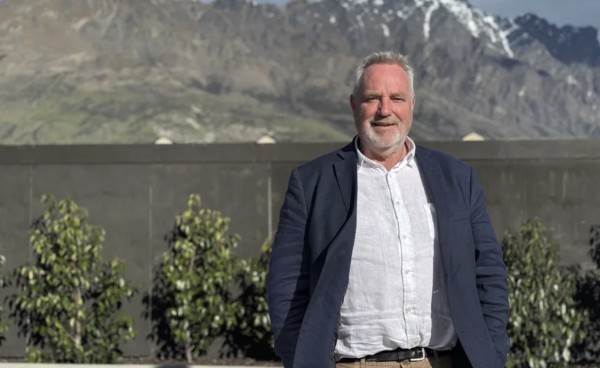
- Jacket John in the flesh.
Has Glover faced any roadblocks in the short time he’s been in office?
“I’d like a lot more money,” he jokes.
“We’re hearing very firm government sentiment that they’d like us to spend a lot less but they’d also like us to do a lot more which is a wicked problem to have.”
But how does the council make money go further, Glover asks.
“I think even at the national government level, there’s a lot of frustration about what they spend on infrastructure and how little they get for it. Everyone’s sat there wringing their hands - the local government, national government - saying we’re spending a lot of money but we’re not getting much for it, so we need to do something about that, start understanding the why behind that.
“I’m sure there’ll be a number of factors but I’d love to lead some of those conversations and see how we can make our money go further locally.”
As for what’s been surprising? It’s the inbox, or rather inboxes – texts, messages, Facebook, Linkedin, and multiple emails.
“That’s probably one of the most overwhelming things to navigate because your instinct is that you should reply to every single person and I can’t physically do that.”
Glover says he needs to “get smart about hearing what the issues are” including hearing from the people not reaching out directly.
“There’s a lot of other people that we need to make sure we stay across and stay engaged with.
“It’s an existential challenge, I think, for democracy, because if we don’t engage or if we’re not seen to engage then people say ‘well why bother’. If people say ‘why bother, there’s no point, they never listen, it doesn’t make a difference, then why should I vote?’ And then if fewer people vote, then we don’t have a mandate and it’s that slippery slope to what do we do and how do we hear our direction?”
Leading a fresh-faced council, Glover also wants issues, not personalities, to play out in the media.
“In terms of media relationships going forward, I just hope we play the issues rather than personalities. That’s all I can hope for.”
As the honeymoon period begins to wear off, and the work begins, it’s time for Jacket John to deliver.
The full, unedited interview with Glover is available for paid substack subscribers here.





